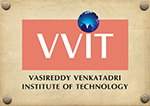Department Vision
To accomplish the aspirations of emerging engineers to attain global intelligence by obtaining computing and design abilities through communication that elevate them to meet the needs of industry, economy, society, environment and global.
Department Mission
- To mould the fresh minds into highly competent IoT application developers by enhancing their knowledge and skills in diverse hardware and software design aspects for covering technologies and multi-disciplinary engineering practices.
- To provide the sate- of- the art facilities to forge the students in industry-ready IoT system development.
- To nurture the sense of creativity and innovation to adopt the socio-economic related activities.
- To promote collaboration with the reputed industries to have the best careers.
- To enable graduates to emerge as independent entrepreneurs and future leaders.
Program Educational Objectives (PEOs)
PEO-1: To formulate the engineering practitioners to solve the industry's technological problems.
PEO-2: To engage the engineering professionals in technology development, deployment and engineering system implementation.
PEO-3: To instil professional ethics, values, social awareness and responsibility to emerging technology leaders.
PEO-4: To provide the technocrats with an amicable environment for the successful pursuing of engineering and management.
PEO-5: To create the right path to pursue their careers in teaching, research and innovation.
Program Outcomes (POs)
PO1: Engineering knowledge: Apply the knowledge of mathematics, science, engineering fundamentals, and an engineering specialization to the solution of complex engineering problems.
PO2: Problem analysis: Identity, formulate, review research literature, and analyze complex engineering problems reaching substantiated conclusions using first principles of mathematics, natural sciences, and engineering sciences.
PO3: Design/development of solutions: Design solutions for complex engineering problems and design system components or processes that meet the specified needs with appropriate consideration for public health and safety, and the cultural, societal, and environmental considerations.
PO4: Conduct investigations of complex problems: Use research-based knowledge and research methods including design of experiments, analysis and interpretation of data, and synthesis of the information to provide valid conclusions.
PO5: Modern tool usage: Create, select, and apply appropriate techniques, resources, and modern engineering and IT tools including prediction and modelling to complex engineering activities with an understanding of the limitations.
PO6: The engineer and society: Apply reasoning informed by the contextual knowledge to assess societal, health, safety, legal and cultural issues and the consequent responsibilities relevant to the professional engineering practice.
PO7: Environment and sustainability: Understand the impact of the professional engineering solutions in societal and environmental contexts, and demonstrate the knowledge of, and need for sustainable development.
PO8: Ethics: Apply ethical principles and commit to professional ethics and responsibilities and norms of the engineering practice.
PO9: Individual and teamwork: Function effectively as an individual, and as a member or leader in diverse teams, and in multidisciplinary settings.
PO10: Communication: Communicate effectively on complex engineering activities with the engineering community and with society at large, such as being able to comprehend and write effective reports and design documentation, make effective presentations, and give and receive clear instructions.
PO11: Project management and finance: Demonstrate knowledge and understanding of the engineering and management principles and apply these to one's work, as a member and leader in a team, to manage projects and in multidisciplinary environments.
PO12: Life-long learning: Recognize the need for, and have the preparation and ability to engage in independent and life-long learning in the broadest context of technological change.
Program Specific Outcomes (PSOs)
PSO-1: Proficient and innovative with a strong cognizance in the arenas of sensors, IoT, data science, controllers and signal processing through the application of acquired knowledge and skills.
PSO-2: Apply cutting-edge techniques and tools of sensing and computation to solve multi-disciplinary challenges in industry and society.
PSO-3: Exhibit independent and collaborative research with strategic planning while demonstrating professional and ethical responsibilities of the engineering profession.


